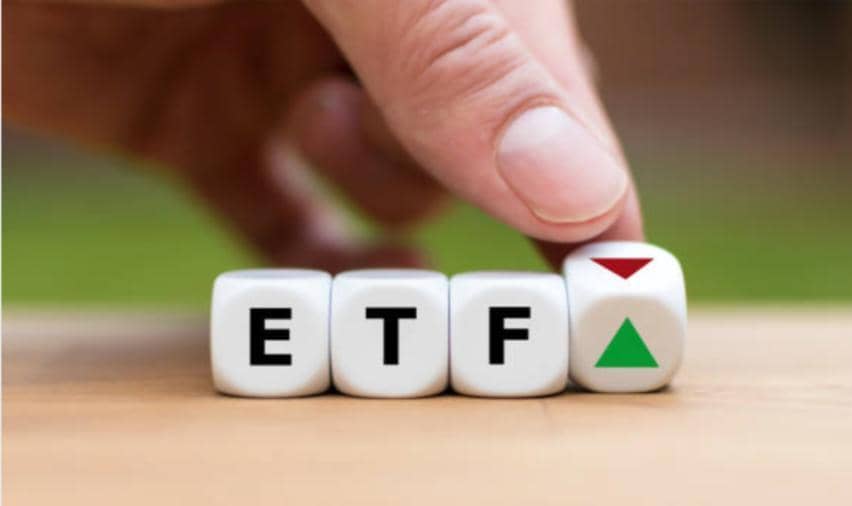Giorgia Meloni will be the first woman to govern Italy. First reactions from asset managers

26 SEPT, 2022
By Constanza Ramos

Italy's elections were marked by a low voter turnout, which barely reached 64%. Giorgia Meloni, 45, leader of the neo-fascist Fratelli d'Italia political party, will head Italy's government. This is the first time the country will have a woman prime minister. Meloni's party won 26% of the vote, six times more than five years ago.

What were the fund managers' reactions to the Italian elections? Here are the views of abrdn, Edmond de Rothschild AM, Federated Hermes, MFS IM and Scope.
Pietro Baffico, European economist at abrdn

Elections in Italy gave way to a comfortable majority for the right-wing coalition in both the upper and lower houses, in line with polls and our expectations. The results increase the downside risks for Italy’s outlook should the new government collide with EU’s institutions. The election was characterized by a record high abstention rate, with participation around only 64%. This story is not new, voters have been increasingly disengaged across Europe, leaving gains to far-right and populist parties over the past year amid a cost-of-living crisis, and with an enraging war in Ukraine.
The leader of FdI Giorgia Meloni, who is set to become Italy’s first female PM, has over time moderated far-right and Eurosceptic rhetoric, suggesting less confrontation with European institutions. In an attempt to portray the coalition as a safe pair of hands, Meloni insisted she will be prudent with public spending, and would consider the appointment of moderate ministers in key cabinet roles. She also struck a sober tone after the result, acknowledging the serious economic challenges ahead. For investors, such a moderation may help to limit the initial degree of market response to the election results, especially given that the large and sustained polling lead has given the market plenty of time to price the election outcome.
But while the coalition parties have significantly softened their Eurosceptic stances over time, much will depend on their plan to ease fiscal discipline, and partly revise the reform agenda already agreed under Draghi’s government. Their first test will be the fiscal budget, to be approved on a tight schedule in the fall. Tension between the new government and the EU institutions is therefore a risk, which could jeopardise the disbursement of EU funds, add downside risks for Italy’s outlook, and constrain the ECB’s ability to contain sovereign spreads.
François Raynaud, Fund Manager Multi-Asset & Overlay at Edmond de Rothschild Asset Management

Behind the expected win of the sovereigntist Georgia Meloni, two points are reassuring in the results: she needs the support of the center-right party Forza Italia to get the majority in the Parliament and her coalition doesn’t win a three fifth majority that would allow easier constitutional changes.
The better result of her party in the polls is achieved at the expense of Matteo Salvini who even loses the leadership in the northern regions. That means that Salvini fails to comeback with his pro Russians views and more aggressive spending propositions, reinforcing the recent pro occidental and relatively softer stance of Meloni.
Nevertheless, the reality and larger spreads should come back as soon as she decides to enter budget negotiations with the EU. Georgia Meloni may decide to postpone major confrontation to 2023 on 2024 budget to avoid being stucked with an already overdue 2023 budget as soon as nominated. Anyway the difficulty would remain on how to finance huge fiscal promises knowing that her wish to end the citizen income (maybe the only restrictive measure of the coalition program) could receive a fierce opposition symbolised by the larger and unexpected score of Conte whose 5 stars party ends as first party in the southern part of Italy.
The result is a warning for the EU as populations governed by sovereigntist parties now represents 26% of the European population, limiting perspectives of further integration.
Silvia Dall'Angelo, senior economist at Federated Hermes Limited

At this stage, the outcome of the Italian election is already clear. The right-wing coalition has won by a comfortable margin and, judging by current numbers, is set to secure about 55% of the seats in both chambers of parliament.
Financial markets have had plenty of time to digest the evolving political backdrop in Italy, and the moderate shift the right-wing Brother of Italy party signalled also helped tame the concerns about the Italian political situation that emerged in the aftermath of Draghi’s resignation. Granted, financial markets will test the new government’s resolve to stick to a path of reforms and fiscal discipline in the next weeks and months, with an initial focus on the key cabinet appointments.
The sterling’s tumble following last week’s ‘not so mini’ UK budget announcement, could very well be a cautionary tale for the next Italian government.
Our baseline is that the next government will play by the rules and will largely stick to a path of reforms and fiscal discipline, given that there are strong incentives in place to do so. They will have to come up with a budget plan to be presented both to the parliament and the European Union by the end of the year. This is a key pressure point, given that Italy is burdened by one of the biggest public debts among advanced economies, at about 150% GDP.
Overall, it will be an uphill struggle for the next Italian government, irrespective of its colours. The Italian economy performed well in the first half of the year, going back to its-recession level in Q2, reflecting the long tail of the post-Covid recovery. However, the outlook is grim, amid an unprecedented energy crisis in Europe and accelerated monetary tightening by the ECB in coming months. High energy prices for households and businesses have already started to weigh on consumption and production and will likely tip the largest eurozone economies into a recession this winter.
Annalisa Piazza, Fixed Income Analyst, MFS Investment Management

The Centre-right coalition obtained a relatively large majority in Parliament after yesterday's general election, with the far-right Fratelli d'Italia winning around 26% of the votes.
Although a clash with the European Union is not imminent (Meloni already softened her anti-EU tone during the electoral campaign), we still see risks for fiscal stability in the medium term. Meloni will need to give some concessions to her allies that promised tax cuts (Lega) and increases in pensions (Forza Italia) and face a challenging situation as slower growth and the need to provide some fiscal stimulus (as per the coalition's manifesto) will undermine the reconvergence of Italy's debt. In our view, tomorrow's multi-annual budget will already show an upward revision for the 2023 deficit (in the 5%-6% range vs 3.9% previously estimated).
Risks around the implementation of the Recovery and Resilience Plan (RRP) represent another challenge for the new government. We see downside risks for some of the 55 milestones and targets that Italy needs to meet by the end of the year to unlock a (net) EUR19bn payment in early 2023. A delay could put even more pressure on domestic issuance. As such, delays and tensions with Brussels cannot be completely ruled out and volatility in BTPs will continue until the overall picture becomes clearer. Some alarms about future instability in the country's fiscal stance could lead to a bear flattening of the curve and underperformance against its peers such as Spain or Greece.
Alvise Lennkh-Yunus, director of analysis at Scope Ratings

The result of Italy’s elections confirms our expectation that Giorgia Meloni is likely to lead a new centre-right government, commanding a comfortable but not overwhelming parliamentary majority. Her clear-cut leadership of the coalition, with Matteo Salvini’s Lega playing second fiddle, is her reward for a more moderate policy stance in the electoral campaign and should give her an advantage in determining who in the coalition gets the most important ministerial posts.
Critically, the center-right coalition looks as if it will fall short of the required 2/3 majority to modify Italy’s constitution without a referendum. In addition, the low voter turnout - at 64%, it is the lowest since WW2 – plus Italy’s highly fragmented political landscape where M5S retains a strong presence, and the relatively poor electoral performance the Lega all weaken the political support for a far-right policy agenda.
Overall, the results signal that Italy‘s next government will continue to face significant institutional and political constraints, in addition to persistent market pressures given Italy‘s high public debt and low growth outlook in an environment of rising interest rates. This underpins our expectation of broad economic and fiscal policy continuity from the previous government of Mario Draghi.
The important next steps to watch over the coming weeks are coalition negotiations, ministerial appointments particularly for the finance and economics portfolio, and discussions with the European Commission particularly over likely marginal changes to the NGEU recovery plan for Italy and associated reforms and fund disbursement.
Related articles
 Allfunds reaches an agreement with Google Cloud to boost innovation in AI and infrastructure optimization
Allfunds reaches an agreement with Google Cloud to boost innovation in AI and infrastructure optimizationBy RankiaPro Europe

